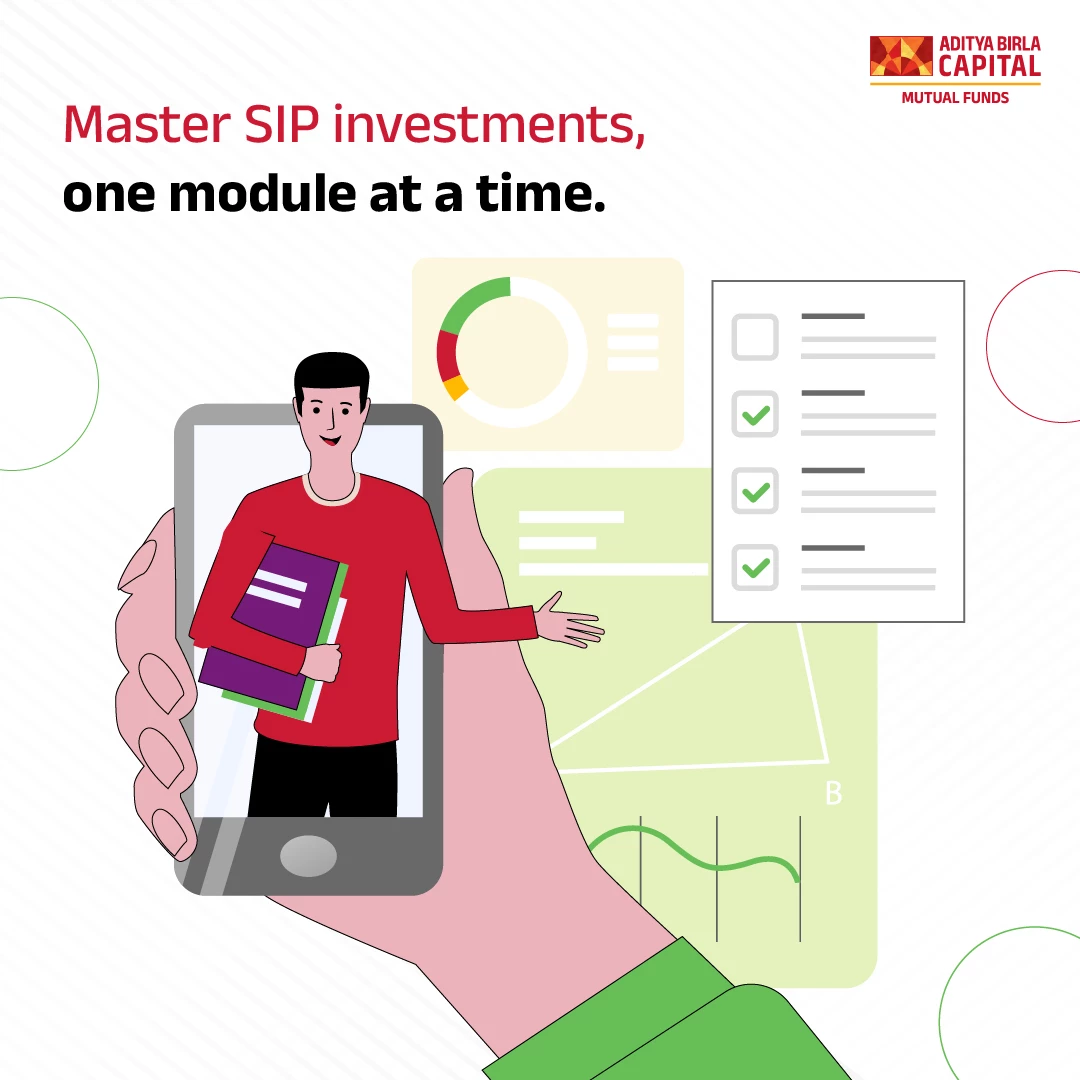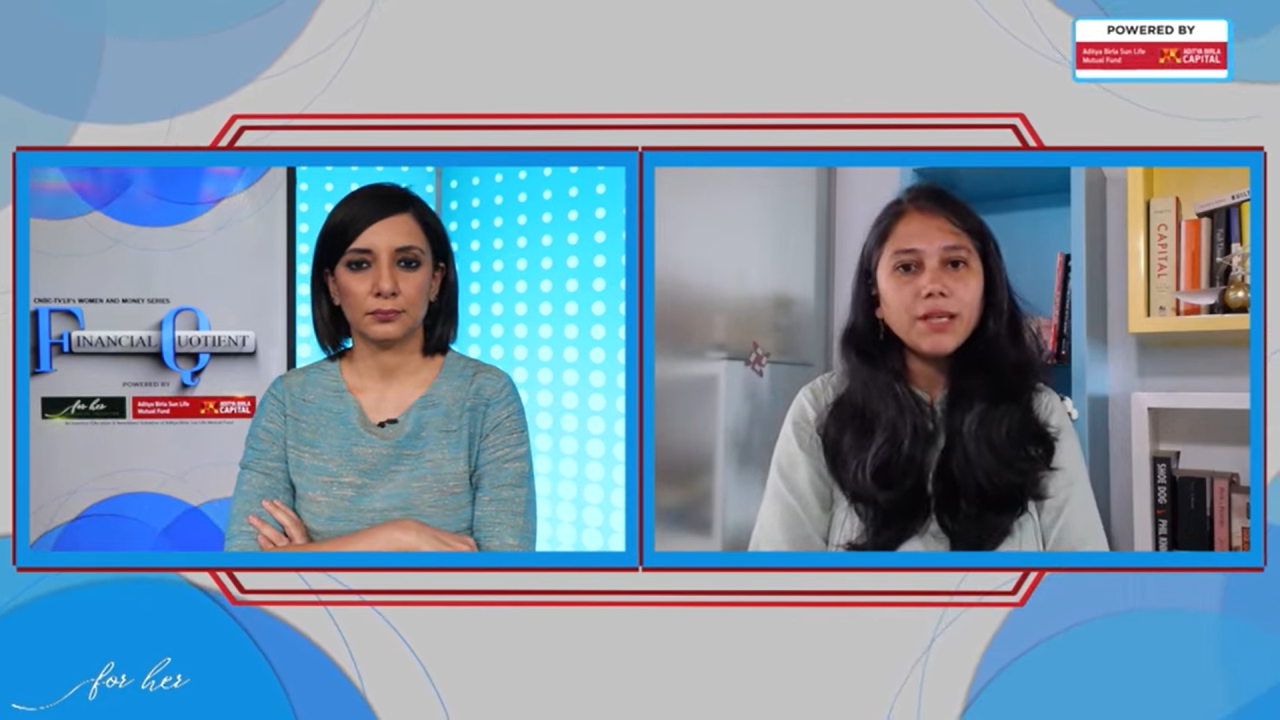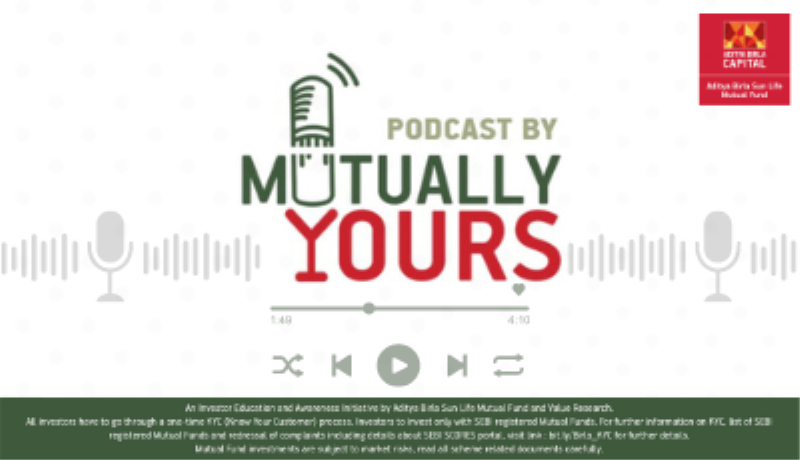At the start of 2020, Anita and Anil had big plans. They had just bought a new car and had begun looking for a bigger home to accommodate their growing family. Then the pandemic hit. And the world came to a standstill.
Anita and Anil started working from home. They also had to home-school their daughter and manage all their home chores without any help. Life was stressful.
The lockdown continued. Days turned into weeks, weeks turned into months. Anil and Anita's salary were drastically reduced.
Anil and Anita were forced to simplify. As time went by, worry began to seep in - EMIs, high-interest credit card bills etc. had started to eat into their diminished income and deplete their savings. They were uncertain about how long they could sustain and if the next unexpected emergency would clean them out. Adding to their woes was the fluctuating market and their lowering portfolio value. Crisis after crisis left them wondering if they should get out before the value dipped further.
The worried couple turned to Rohit, a family friend and a financial advisor for help.
Rohit encouraged Anita and Anil to stay calm and provided them tools and tips that should help them slowly and systematically overcome their financial problems.
Live Within Your MeansRohit recommended that Anita and Anil start their journey towards financial wellness with a self-audit i.e. identify income sources and track sources of expenditure. This would help them become more aware of how much money they have to spend as well as how they spend their money.
Rohit also recommended that they take a closer look at each expense to determine if it was essential, an indulgence and if there was a smarter buy.
For example, they could lower their outgoings by limiting takeout to once a week or choosing a less extensive tv package.
By living within or lower than their means, they could alleviate some of the financial pressure they are experiencing. He adviced them to create a budget and stick with it.
Pay off Debts Early
Anita and Anil were struggling to pay their debt on time and at times had to rely on loans and credit cards. This 'borrow from Peter to pay Paul' strategy was adding to their debt.
Rohit noticed that Anita and Anil got an occasional boost of income by renting their old car and from freelance work. He recommended that in addition to paying their debt on time, they funnel this additional income to pay off portions of their debts early.
By following this strategy, they should be able to slowly and steadily get out from under the mountain of debt.
Start a Contingency Fund2020 has shown us that having a backup plan is essential to living a smoother life when faced with the unexpected.
Rohit recommended that in the future Anita and Anil start a contingency fund. He told them to create a separate liquid fund and slowly and steadily build up a corpus worth 9 to 12 months of salary.
By creating a contingency fund, they probably wouldn't need to rely on savings if ever faced with a pandemic, a natural disaster, a medical emergency etc.
Invest Smartly, Stay InvestedAnita and Anil's past investments were disarrayed. They weren't made to achieve a particular goal. They weren't sure of the soundness of any of the investments. In fact, they had recently exited many of their investments due to market's volatility. They were unsure if the funds were performing well or not at the time of exit.
Rohit cautioned them against knee-jerk reactions. He explained to them that the market was like the sea - there are high tides and low tides. How you navigate them determines your ability to succeed.
He compared the situation we faced in 2020 to the 2008 global financial crisis; when fears about changes in the global investment climate and a global recesion led to foreign intitutional investors to de-invest from funds in emerging markets. These signs led to market fall and a slow down in the Indian economy. These events and signs led to a period of rough waters. However, this situation wasn't permanent. When the world regained its footing, the market regained optimism. In fact, some smart investors saw this as a buying opportunity and made some careful and smart investments.
He also informed them that while 2020 saw plenty of ups and downs, currently, there are many positive trends that have begun to affect the market. For example, the creation of the COVID-19 vaccine, the preparation to distribute the vaccine to our frontline warriors, the pickup of consumer demand, the rise in economic growth and more. The signs are of changing tide.
A smart investor does 3 things: Plans SmartlyMake purposeful investments based on your goals. For example, if you want to build a contingency fund for emergencies - consider investing in a liquid fund with easy access to your money. If your aim is to earn while saving tax, consider investing in an ELSS fund that offers a lower lock-in period.
Choose a Fund based on your ability to take risk and your life stage. For example, if you are investing to buy a home in 3 to 5 years, choose a fund that offers growth without too much risk - this could be a debt fund or a hybrid fund. If you are investing for the long term (10-15 years +) goal like retirement, consider an equity fund that aims to deliver reasonable returns at a higher risk. As you grow closer to retirement, you can switch to a debt fund to lower your risk level.
Invests Wisely
Evaluate a fund before investing. While past performance does not guarantee returns, you can use it to guage a fund manager's capabilities.
A fund manager is responsible for a mutual fund. His decisions can play a key role in a fund's performance. One may review his past records to determine his ability to deliver consistent returns across market situations.
Exits CarefullyDo not panic or take hasty decisions due to market fluctuations. Funds offer transparency in terms of where they are investing. Gauge the stability of the companies, stocks, securities, etc. to determine if this is a bump in the road or a sign to exit.
Note: If you are unsure how to plan your exit, you can seek advice from a financial advisor.
By following these steps and working with Rohit, Anita and Anil gained tools and tips on how to tackle their financial problems and aim to build a better future, financially. It helped them start the new year with confidence.
Just like Anita and Anil, we too need to learn from our struggles in 2020 and arm ourselves financially to be prepared for any challenges that life throws our way.
Spend Less, Save More, Stay Invested!
Reference
https://m.rediff.com/money/2008/oct/24bcrisis10.htm
https://tejas.iimb.ac.in/articles/05.php
http://specials.rediff.com/money/2008/jan/21sld1.htm
An Investor Education and Awareness Initiative of Aditya Birla Sun Life Mutual Fund
All investors have to go through a one-time KYC (Know Your Customer) process. Investors to invest only with SEBI registered Mutual Funds. For further information on KYC, list of SEBI registered Mutual Funds and redressal of complaints including details about SEBI SCORES portal, visit link: bit.ly/Birla_KYC for further details.
Mutual Fund investments are subject to market risks, read all scheme related documents carefully.





 1800-270-7000
1800-270-7000





















